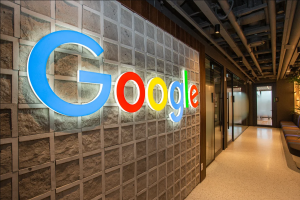Google Reigning In Control Over Android Platform, Bans Kongregate
![]() It was just two days back when we heard about GameStop launching the Kongregate Arcade, a new app that allowed customers to download over 300 free Android games. This app provided several popular Flash-based games, including Vector Runner, Assembler, Perfect Balance 2, Barry Lost His Marbles, Billy’s Hill and G-Switch. Just when things kicked off, Google put a full stop on it. The search engine giant has removed the app within one day of its launch, saying that it violated Google’s terms of service policy, which reads:
It was just two days back when we heard about GameStop launching the Kongregate Arcade, a new app that allowed customers to download over 300 free Android games. This app provided several popular Flash-based games, including Vector Runner, Assembler, Perfect Balance 2, Barry Lost His Marbles, Billy’s Hill and G-Switch. Just when things kicked off, Google put a full stop on it. The search engine giant has removed the app within one day of its launch, saying that it violated Google’s terms of service policy, which reads:
“You may not use the Market to distribute or make available any Product whose primary purpose is to facilitate the distribution of Products outside of the Market.” A “Product” is defined as “Software, content and digital materials created for Devices in accordance with the Android SDK and distributed via the Market.”
Whatever may be the reason behind this decision, it has acted as a “blessing in disguise” for Kongregate. There are several contributing reasons for this. Firstly, this app can be promoted from its own retail vehicle and owner, GameStop, both online as well as in retail stores. Secondly, it will be offering the app via GetJar, which is not necessarily a bad thing (can we say, loophole?). Finally, the ejection of Kongregate app has resulted in a viral publicity that it could not get at the time of launch. Interesting? I’d say so.
GigaOm outlines how this effect could also impact Amazon’s plans for an Android app store as it has started inviting developers to submit apps to its Amazon App Store for Android. This would allow users to be able to go online, buy an app and have it pushed out to their phone. But if Amazon plans on relying only on Android, it may also end up like the Kongregate Arcade. The bottom line is that Google’s market rules can predominantly shrink Amazon’s plans around its AppStore.
Recently, we heard about Apple seeking some more control over its mobile app marketplace, especially in revenue terms. Apple has always kept a tight control over its app store, though they’ve become more lax with their app approval process, while still keeping a close watch on the software that’s being offered through their iTunes App Store. It’s important to note that there are no third party iOS app marketplaces, reiterating Apple’s control over its software distribution.
Android, on the other hand, is an open platform. Pretty much anyone can make software to be downloaded on an Android phone and push it through the Market, and third parties are taking advantage of that, generating revenue as well. For example, Facebook’s platform saw a similar monetization structure from third parties early on–advertisers in particular. More recently, Apple made moves to retain more control over specific apps – those publications with subscriptions.
A message from John Furrier, co-founder of SiliconANGLE:
Your vote of support is important to us and it helps us keep the content FREE.
One click below supports our mission to provide free, deep, and relevant content.
Join our community on YouTube
Join the community that includes more than 15,000 #CubeAlumni experts, including Amazon.com CEO Andy Jassy, Dell Technologies founder and CEO Michael Dell, Intel CEO Pat Gelsinger, and many more luminaries and experts.
THANK YOU













